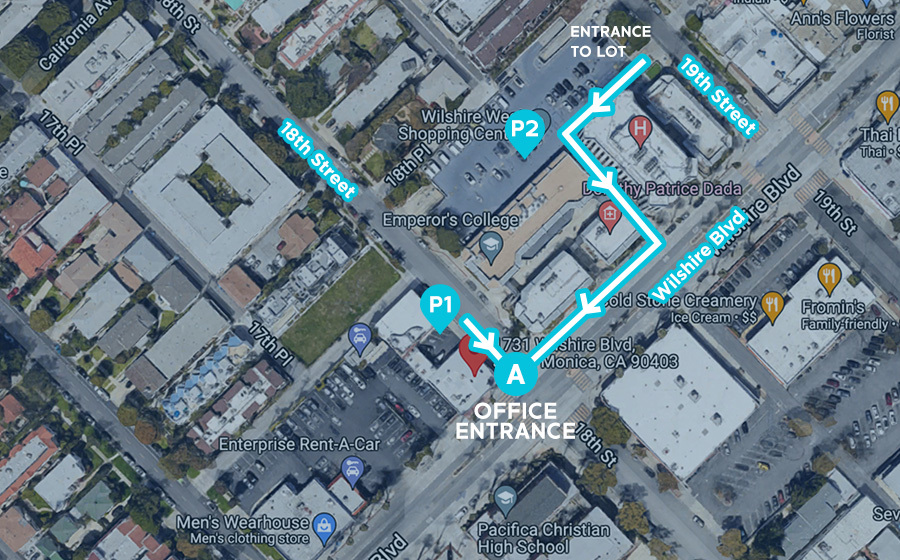Clearing the Doubts and Fears About Wisdom Teeth and Orthodontics

When it comes to wisdom teeth, it is customary to get frightened. But it is even worst when we think of third molars and brackets. And yes, we agree that wisdom teeth sometimes bring several complications to our oral health and are seen as the bad guys.
Furthermore, let’s imagine you go for a dental checkup. Your dentist asks for an X-ray, confirms your wisdom teeth are sprouting, identifies a severe underbite, and refers you to an orthodontist. What would be the first thing that comes to your mind?
Maybe, the first idea would be to ask your dentist to extract your third molars so they don’t get in the way of the orthodontic treatment you plan to start. But let’s twist this story a little bit. Imagine three scenarios:
- You don’t want your final set of molars extracted, but you want your smile straight;
- Your wisdom teeth start sprouting right after you begin your orthodontic treatment and;
- You finish with your orthodontic treatment and realize your wisdom teeth are erupting.
Great, we have all the possibilities that can occur at hand, yet, not many answers. Luckily, this article addresses patients’ most critical and common questions about third molars and orthodontic treatment. And indeed, there might be answers for the depicted scenarios, so let’s check this out.
Can Wisdom Teeth Shift Other Teeth?
No, wisdom teeth do not shift other teeth. In detail, third molars exert little strain on adjacent teeth to trigger a reaction that twists other molars.
The first thing we must know is that the final set of molars to erupt are teeth that have different and undefined anatomy than the rest of the teeth. This means that while all other teeth have definite characteristics, the first molar has three roots, and the upper second molar has two roots, wisdom teeth vary significantly in their root anatomy.
In most cases, third molars have their roots fused or delicate. In addition to this, the reason why they do not affect other teeth has to do with their size. Wisdom teeth tend to be much smaller than all the other teeth in the mouth.
First, our readers must consider that third molars, due to their volume, cannot move all the other teeth ahead of them, which are much larger and have defined characteristics.
Second, wisdom teeth do not have the necessary eruptive force to move other teeth. For example, when a six-year-old child has an eruptive process, it generates about ninety grams of pressure per cubic centimeter [90g/cm3] so that the permanent tooth that comes below the baby tooth comes out and goes through the bone and gum.
But why are we talking about this? Well, in the child’s case, for that erupted tooth to reach that position, it had to exert a strong force.
Imagine that, for example, orthodontists use an orthodontic appliance to apply a pressure of around one hundred grams per cubic centimeter [100g/cm3] to move your teeth safely without cutting off the blood supply and without causing root resorption.
In summary, wisdom teeth do not have the size or strength to move other teeth with defined characteristics and are firmly tight in the mandibular arch.
Wisdom teeth, to be able to move the rest of the teeth that are in front of them and that are tightly in position, would require more than one hundred and fifty grams per cubic centimeter [150g/cm3] of pressure to be able to move them.
Why We Can Ensure Wisdom Teeth Won’t Shift Your Smile
To bolster this argument, a researcher named Dr. Ross Kaplan conducted a study with a sample of seventy-five patients and divided them into three groups.
- In the first group, the patients had their third molars impacted on the bone and in a horizontal position;
- In the second group, the patients had their wisdom teeth in the mouth but in a perfect vertical position and a perfect position in the dental arch and;
- The third group with patients whose third molars never erupted or formed.
Dr. Kaplan followed up on the patients for ten years, noting that in none of the three cases was there more or less variation in the movement of their front teeth. Moreover, even in patients with bone-impacted wisdom teeth, there was no movement in the front teeth relative to patients who never developed their third molars.
But why are there crooked teeth when the wisdom teeth come out? The explanation for this phenomenon may be genetic characteristics that manifest parallel to the eruption of the third molars.
Of course, this is a theory. We don’t know why the teeth begin crooning again around eighteen, even after removing an orthodontic treatment.
Although there is no certainty about how age affects the teeth, what is certain is that wisdom teeth cannot move other teeth.
Should I Get Braces Before or After my Wisdom Teeth?
You can get braces before and after the eruption of your final set of molars, but getting braces before wisdom teeth sprout might open two scenarios.
First, before installing braces, your orthodontist requests an X-ray. Your orthodontist makes a plan keeping in mind there might be wisdom teeth below the gums that have not yet fully sprouted.
- An orthodontist sometimes needs to remove dental pieces, including your back and final molars, to allow other teeth to move into the recently created room and place them in the correct position before braces treatment.
- In other cases, after an observational study, your orthodontist notes that she doesn’t need to extract molars to straighten your teeth and keeps your wisdom teeth in place.
Second, before starting any orthodontic treatment, your orthodontist comprehensively evaluates your oral condition and determines you have impacted wisdom teeth (they are in the wrong position) and can compromise other teeth. In this scenario, you might be a candidate for teeth extractions before orthodontic treatment.
Exemplifying, impacted wisdom teeth that partially erupted sometimes come at an awkward angle, causing food to stay trapped in intricate spaces that are hard to clean. This leads to bacteria accumulation which produces a risk of tooth decay, gum disease problems, and risk of infection that might spread to a functional second molar and damage to the jaw bone.
Getting braces after your third molars sprout is also feasible. Remember, orthodontic treatment starts with a comprehensive evaluation of each case.
So, if your wisdom teeth sprout before entering an orthodontic procedure, don’t panic. Your orthodontist will tell you why she might need to remove your wisdom teeth.
- As in the previous scenarios, there are functional reasons, for example, to create space for functional teeth to move into an available spot to alleviate overcrowding.
- There might also be oral health-related reasons, like avoiding the possibility of infection, that might be counterproductive during orthodontic treatment or potential damage to a neighbor’s healthy tooth (prophylactic extraction).
Can I Get Wisdom Teeth Removed While Having Braces?
Yes, you can get your third molars during orthodontic treatment. In fact, sometimes, orthodontists cement brackets to these molars, and if a patient requires extractions during treatment with traditional braces, the orthodontist removes the brackets from wisdom teeth before the extractions.
How Long Does It Take To Recover From Wisdom Teeth Removal?
It takes about two weeks to recover from wisdom teeth removal. A dentist can extract your third molars. However, extractions might be a little complicated.
In a few cases, for example, your dentist might require a periodontal status evaluation, or there might be a need to have extra care with lingual nerves to minimize the possibility of nerve injury.
As a result, she might refer you to a maxillofacial surgeon for a surgical procedure after a prospective cohort study of the case.
Therefore we recommend you strictly follow your doctor’s prescription. Also, you must refrain from smoking and drinking alcohol to avoid severe pain and postoperative infection.
Your cheeks and mouth might get swollen. Press a cold cloth on the affected area to reduce the inflammation.
Creating Confident Healthy Smiles at Abraham Orthodontics
At Abraham orthodontics, you can count on a thorough evaluation of your wisdom teeth as part of a comprehensive orthodontic treatment.
Rest assured, Dr. Abraham is part of Board-Certified orthodontists, giving you the confidence you will get a beautiful smile without the hassle.
Visit Abraham Orthodontics, or make an appointment. Dr. Abraham is an experienced orthodontist that will clear any doubts by doing a systematic review and guide you on the path to having an astonishing straight smile.


